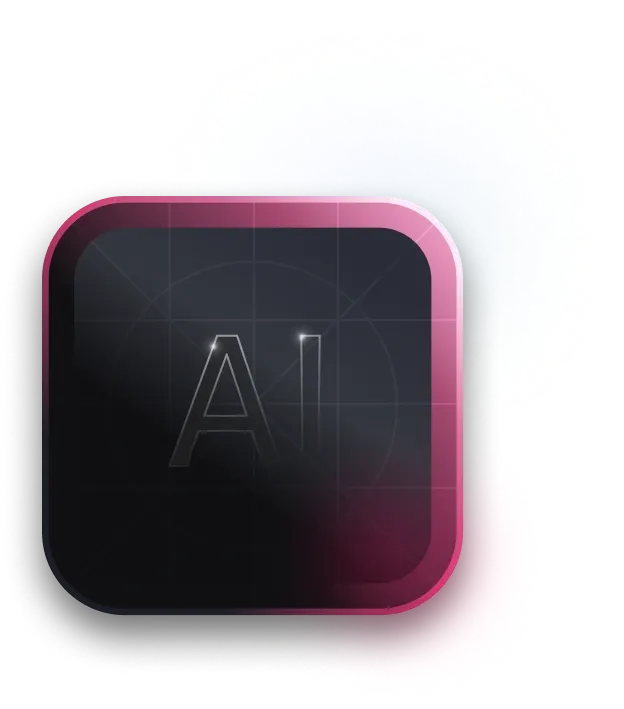The entertainment business, particularly music, has sustained many changes. Streaming music on a blockchain network has become an innovation that allows musicians to get adequate compensation for their jobs and talent. In the article, we will review the mechanism of blockchain working music and its beneficial role for music artists among other streaming technologies.
The Impact of Streaming Platforms on Music Industry Revenue and Musicians
Today’s leaders in music streaming, such as Spotify, Apple Music, Amazon, Tencent, etc., offer to listen to your favorite artists’ creations on a paid basis. The diagram below shows the percentage of users exploring the existing musical platforms.
Depending on the song length, user subscription plan, and location, the leading platform Spotify pays out less than one cent per play, to be clear: $0.006 and $0.0084, and not even to a musician but the music rights holder, be it a record label, publisher, or distributor.
Despite numerous disappointed expressions, Spotify explained to artists that regardless of the name weight and album profits, the calculation will happen according to the given model:
Low per-stream royalty is the core reason that disappoints talents and pushes them to make decisions about giving priority to blockchain music distribution. The American singer Taylor Swift abandoned Spotify in 2014, complaining that the platform diminishes the worth level of her art and talent.
Other artists take the same route, agreeing that the royalties paid by stream platforms are too low, e.g., American rock duo The Black Keys. Some artists continue streaming but encourage fans to purchase the album before it appears on the stream (e.g., Coldplay).
Also, one of the most spreading tactics is making the songs shorter to multiply their streaming potential and earnings subsequently. However, progressive musicians choose more up-to-date, tech-driven approaches, such as blockchain networks, to have a stable connection with the listeners without compromising earnings.
Blockchain and Its Arrangement of Decentralized Music Distribution
Blockchain is an advanced database that stores information in blocks chained together chronologically. The uniqueness of this system lies in the security of each block — there is simply no way to change or remove it. The immutability mechanism grants transparency and safety, which comes in handy in all kinds of business spheres.
The pivotal benefit of the blockchain system for musicians is the conception of Smart contracts. The unique code includes the terms of the agreement, distributing royalties to musicians immediately after streaming or selling a product, and providing payments automatically. This way, blockchain excludes monopolistic organization rules control and protects the records from revision or tampering.
Find out how IoT and blockchain are creating smarter, safer systems
Overall, IT tech powered by blockchain has provided an innovative platform for musicians to spread their art among their audience. More than that, they also get to monitor exactly who consumes their music and create an individual model of profit sharing among record labels, distributors, and all stakeholders.
Numerous artists switched their song upload destinations from centralized Spotify and other platforms to decentralized blockchain networks. These artists include RAC (album «EGO»), Imogen Heap («Tiny Human»), and others. But the real boom happened in 2017 when the futurist artist Björk announced that she would accept cryptocurrencies for her album «Utopia», and even praised 100 AudioCoins for each purchase. For the first time, a global artist supported this initiative. It greatly benefited the blockchain community, impacting the music industry in general.
What’s Needed to Create a Decentralized Music-sharing Platform
An up-to-the-task app created for spreading music among fans and gaining a profit should offer the following features:
- Safety and security for the uploaded files to exclude piracy;
- Opportunity to pre-view music streams on the platform before song selection and playlist creation;
- Ability to proceed with cryptocurrency payments to musicians;
- Tailored access to the most-liked artists;
- Implementation of the Smart contract technology for song download;
- Transparent payment system via blockchain;
- Variegating of the monetization options via an agreement with fans, for instance, sharing revenue if they share music and involve more crowd in the fan zone.
Simplicity and easy-to-understand ways are the best methods of providing both information and related products for consumers. This is why your app will most certainly need a lightweight design with an eye-candy user interface (UI). The rest is about actually distributing and selling music online. Let’s take a look.
Must-do’s for selling music on the blockchain
An in-depth understanding of how blockchain technology works is essential. If you don’t have a development team to hand out this assignment, think about it first. Hiring a team of professionals saves plenty of time and helps with product development. Blockchain music streaming apps require a highly professional set of skills, data stores must adhere to the necessary cryptographic standards, and crypto tokens must remain strictly confidential.
The fully decentralized streaming platform works similarly to a web application except for running on a decentralized blockchain network. To sum it up, here’s what you need to do step by step:
- Hire a team of professionals;
- Sketch a user-friendly interface;
- Use a blockchain system;
- Encrypt Smart contracts and tokens;
- Test and launch smart contracts and the platform.
Initially, the team should consist of web developers, designers, business analysts, blockchain programmers, project managers, and testers. Most entrepreneurs won’t experience any problem finding specialists in this sphere, but finding a brainy blockchain crew might be complicated.
Unfortunately, many of those involved in show business have a limited understanding of blockchain generally, its mechanism of work, and the benefits it can bring to business. The information gap makes blockchain difficult.
Our AI and Data Science Case Studies

So make sure to dedicate enough time to find a suitable professional. Keep in mind also that your team may need specific training to learn the recent tendencies of blockchain technologies, especially in smart contracts, which are very challenging. Add this to your budget and time-limit planning.
Monetization in a blockchain music streaming app
Here’s how it all works.
The right holder with a smart contract represents his rights to blockchain music royalties, which means the money from streaming or sales flows into the contract. The contract allows immediate payments: today, a musician with up to a million streams easily gets $4,000-$7,000 straight to their digital wallet, then transfers it into the bank account.
The new transparent, quick, and fair payment approach allows absolute convenience and the absence of headaches of traditional payment systems. A simplified system allows focusing on the masterpiece creation and dedicating more time to it instead of the bureaucratic routine.
Let’s build software that works for your business
This range is not the limit: there are multiple ways to increase the profit thanks to token-gated access to the exclusive files, rewarding fans’ activity and their assistance in multiplying the fan crowd, etc.
Conclusion
Blockchain-based music distribution is an incredible business method for the music industry, especially to be leveraged by new talents and brand stars. At Requestum, we help find ways to leverage it through unique, attractive, and functional designs, providing a convenient platform where artists interact with their audience.
We support the rivaling artists who blame low profits on centralized platforms. So we do our best to contribute to creating products that allow talents to gain maximal benefits. And we know firsthand how powerfully a music promotion or project distribution can be driven by a custom tech approach.
If you want to implement your business vision and need a team of highly professional IT specialists to assist you, the Requestum is here to help. Our team will support you at every step of the way, starting from business analytics, and guide you to the final platform creation, providing the complete package services for the smoothly running blockchain network app. So, don’t hesitate to contact us, and let’s start the journey together.

Our team is dedicated to delivering high-quality services and achieving results that exceed clients' expectations. Let’s discuss how we can help your business succeed.


SHARE: